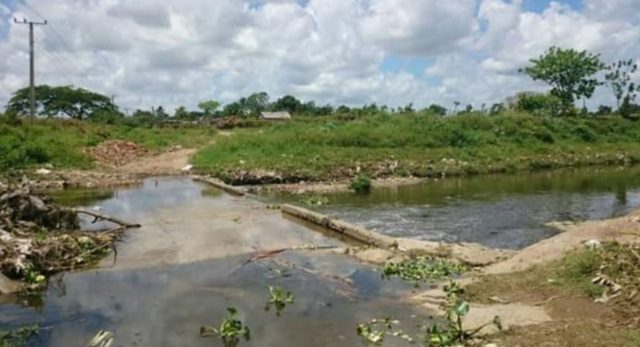BTN News: Yenys Fernández Pupo, who lives in Holguín, Cuba, has voiced her concerns about the poor sanitary conditions in her area. In a heartfelt Facebook post, she asked local officials to solve the health problems threatening many people. Her plea shows the urgent need to fix an issue that officials have largely ignored, yet continues to harm the local community.
Fernández Pupo shared her worries about the illnesses affecting her community, including her own. “I have been sick for a month. I’ve gone to the Holguín Clinical Surgical Hospital twice, but they’ve only done tests without diagnosing the new virus,” she said. She referred to the Oropouche virus, which is spreading across Cuba. Her post included photos of her neighborhood, showing the dirty conditions that persist despite efforts from sick neighbors who cleaned the area.
The situation worsened when the Cuban government admitted in early July that the Oropouche virus has spread to 12 provinces. The government said they don’t have the resources to start fumigation campaigns to stop the spread of the mosquito carrying the virus. Francisco Durán, the National Director of Epidemiology at the Ministry of Public Health (MINSAP), confirmed on national TV that the virus mainly affects rural and semi-rural areas, with symptoms similar to dengue fever.
Durán stated, “The virus began in Santiago de Cuba and Cienfuegos, but now we also see it in Matanzas, Mayabeque, Villa Clara, Sancti Spíritus, Ciego de Ávila, Holguín, Guantánamo, Artemisa, Camagüey, and Granma.” The widespread presence of water leaks, garbage dumps, and natural breeding grounds for mosquitoes makes it harder to control the insects spreading the virus.
Fernández Pupo’s plea highlights the need for immediate government help. The photos she shared show the dirty conditions that help mosquitoes breed. Despite community efforts, the lack of official action keeps putting residents at risk.
The Oropouche virus was first found in Brazil in 1955. It is mainly spread by the Culicoides paraensis midge but can also be spread by mosquitoes. Symptoms include fever, headache, muscle and joint pain, and sometimes severe neurological problems. The virus’s spread across Cuba has worried health officials, who are struggling to handle the outbreak with limited resources.
Local communities have increased their efforts to fight the virus. Residents like Fernández Pupo are using social media to raise awareness and call for action. But without enough government support and resources, these efforts may not be enough to stop the virus’s spread.
The Cuban government faces big challenges in dealing with the outbreak, including economic problems and a lack of medical supplies. International aid and working with global health groups could provide much-needed help in managing the crisis. For now, residents like Fernández Pupo continue to speak out, hoping their pleas will lead to action and relief for affected communities.
As the situation continues, it is important for officials to focus on public health measures, improve sanitation efforts, and ensure medical facilities can diagnose and treat those affected by the virus. The health and safety of Cuban citizens depend on quick and effective action to stop the Oropouche virus and improve living conditions across the country.


